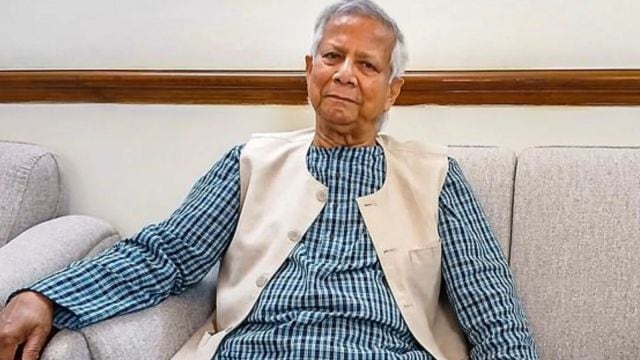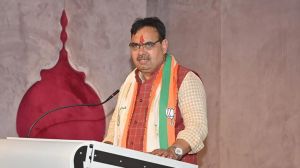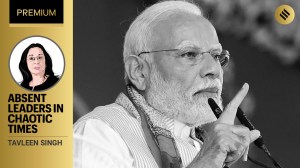Textile giant Bangladesh offers US cotton purchase to dodge reciprocal tariff
India has a stake in the Bangladesh textile industry as several Indian textile firms operate factories in Bangladesh to benefit from the favourable duty regime granted to nations bracketed as Least Developed Countries (LDCs) by the European Union.
 Yunus sought a three-month postponement of the reciprocal tariff measure on Bangladeshi exports to the US. (File photo)
Yunus sought a three-month postponement of the reciprocal tariff measure on Bangladeshi exports to the US. (File photo)Bangladesh, the world’s second-largest ready-made garment exporter after China, on Monday offered to purchase various US farm products, including cotton, duty-free in an effort to avoid reciprocal US tariffs, a letter from Bangladesh’s Chief Adviser, Muhammad Yunus, to US President Donald Trump showed.
Yunus sought a three-month postponement of the reciprocal tariff measure on Bangladeshi exports to the US, proposing a series of initiatives, including facilitating the launch of Billionaire Elon Musk’s Starlink in Bangladesh and opening the country’s advanced tech sectors—such as civil aviation and defence—to US companies. Several textile manufacturing hubs such as Vietnam, Cambodia have also sought such deals with the US.
The move comes amid concerns that reciprocal tariffs have disproportionately affected smaller, more vulnerable economies due to the nature of US tariff calculations. Bangladesh has been hit with a 37 per cent reciprocal tariff, a big blow to its textile sector — the country’s largest foreign exchange earner.
India, which exports over $2 billion worth of cotton and yarn to Bangladesh annually, has a stake in the Bangladesh textile industry as several Indian textile firms operate factories in Bangladesh to benefit from the favourable duty regime granted to nations bracketed as Least Developed Countries (LDCs) by the European Union.
“I write to assure you that we in Bangladesh will take all necessary actions to fully support your trade agenda. Shortly after your inauguration, I sent my High Representative to Washington DC to indicate our intent to substantially increase American exports to the fast-growing Bangladesh market of 170 million people,” Yunus stated in the letter.
Bangladesh is currently recovering from a political and economic crisis in the country last year. High inflation had eroded Dhaka’s US dollar reserves, limiting the country’s ability to import critical goods such as agricultural items, iron and steel, electricity, and plastics from India. During the last financial year, economic activity has been slowing in Bangladesh as its imports of petroleum products from India slipped 8 per cent in June compared to May last year.
“To increase the speed to market of US cotton, we are finalising a dedicated bonded warehousing facility in Bangladesh where these goods will enjoy duty-free access. You will also be pleased to know that Bangladesh has the lowest tariff on most US exports in South Asia. We remain committed to zero tariffs on key American agricultural commodities, as well as on scrap metals,” he added. Yunus also said that Bangladesh is working on a 50 per cent tariff reduction on major US export items such as gas turbines, semiconductors, and medical equipment.
“We are also removing an array of non-tariff barriers to US exports. This includes eliminating certain testing requirements, rationalising packaging, labelling, and certification processes, and introducing trade facilitation measures such as simplified customs procedures and standards,” he said.
He further noted that the country has taken the necessary steps to enable Starlink’s launch in Bangladesh, marking a new chapter for US businesses across advanced sectors like civil aviation and defence.
“We will complete the ongoing and planned actions within the next quarter. Please allow us the necessary time to implement this important work smoothly, in consultation with US officials,” Yunus concluded.
Top Stories


Must Read
Buzzing Now


Apr 13: Latest News
- 01
- 02
- 03
- 04
- 05






















